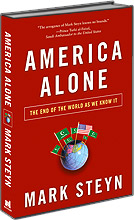“The facts of life are conservative.” — Margaret Thatcher
To fight – or not to fight. Is the War in Afghanistan a necessary war or not? Barack Obama doesn’t seem to be sure. Was the Iraq War necessary? You’ll find people on both sides of the political divide with different answers.
One thing is certain – and our founders knew it – that mankind was – and is – problematic. And so too are the forces unleashed by the nations that man creates.
To over-generalize, the Father of our country – George Washington – preferred that we keep to ourselves as much as possible. He believed we should avoid “entangling alliances” (Thomas Jefferson’s words actually), beware of foreign influences, and follow a path of neutrality unless absolutely necessary.
In his farewell address, Washington laid out his case that basically America’s geographical detachment and distance from the squabbling old countries allowed us to “pursue a different course” from those that bordered potentially hostile neighbors:
“If we remain one people under an efficient government. the period is not far off when we may defy material injury from external annoyance…”
 He was right – for his times. Two hundred years later, invention has made the world small. In his brilliant book “America Alone,” Mark Steyn wrote that “Everyone lives next door now.”
He was right – for his times. Two hundred years later, invention has made the world small. In his brilliant book “America Alone,” Mark Steyn wrote that “Everyone lives next door now.”
“Far too many American conservatives still think the dragons are at the far fringes of the map-that in the twenty-first century the United States can be a nineteenth-century republic untroubled by the world’s pathogens because of its sheer distance from them. But in an age of globalized proximity…the world is in the room with us.”
Can we still pursue a different course? It’s entirely understandable that many people want to hold the position that the rest of the world’s problems belong to the rest of the world – and we should leave well enough alone.
President George W. Bush had a different take:
“The survival of liberty in our land increasingly depends on the success of liberty in other lands.”
Mark Steyn agreed with him.
“I’m a little unnerved at the number of readers who seem to think the rest of the world can go hang but America will endure as a lonely candle of liberty in the new Dark Ages. Think that one through: a totalitarian China, a crumbling Russia, an insane Middle East, a disease-ridden Africa, a civil war-torn Eurabia-and a country that can’t even enforce its borders against two relatively benign states will somehow be able to hold the entire planet at bay? Dream on, ‘realists.'”
Does this mean we’re the world’s policeman and are supposed to play the role of nation-building globetrotters? No – but we had better realize that there are times when key regions will require our assistance if the good guys are to win. If the good guys don’t win, there won’t be any other policemen in an increasingly unruly world.
This country came into being in part because of the assistance of a foreign power – France. There are times when our interests will be threatened or negatively impacted without our direct involvement. There are times when we are going to have to export our values into regions that are going to be an “annoyance” (to use Washington’s word) if we don’t.
Up next: Part 2.

